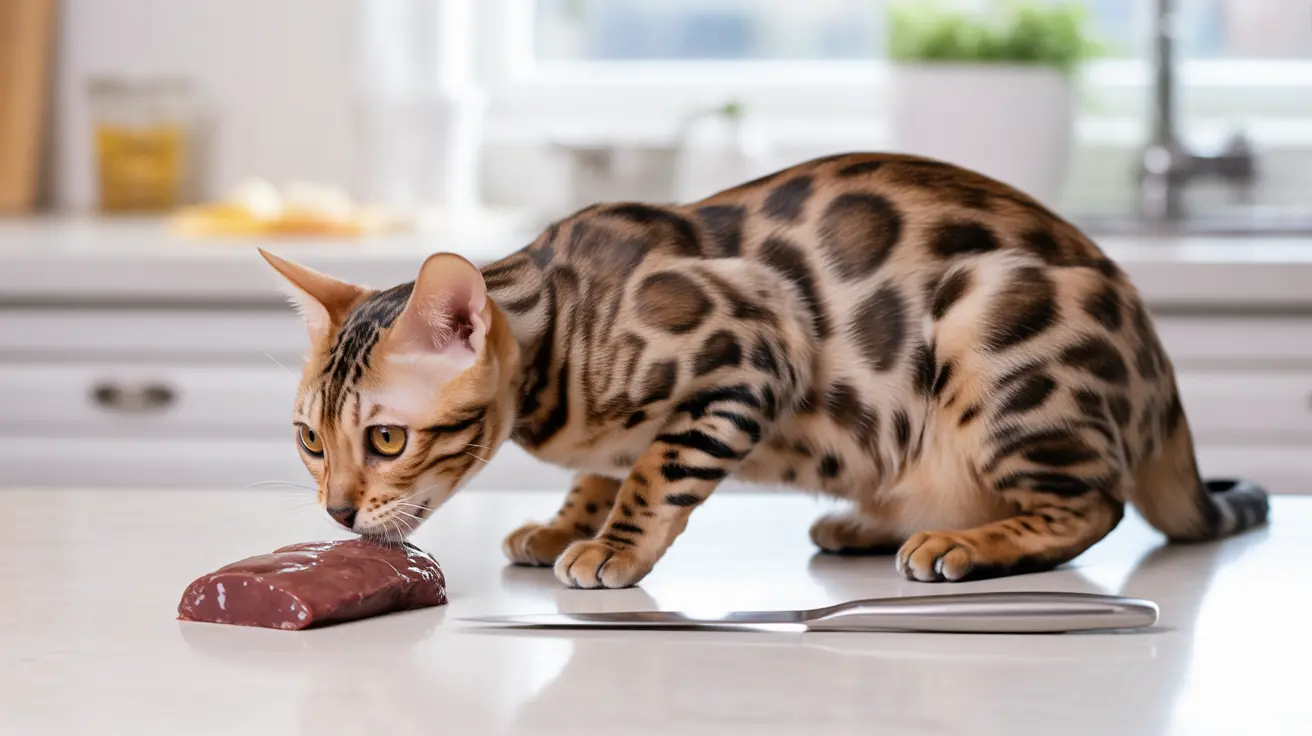Many cat owners wonder about incorporating organ meats like beef liver into their pet's diet. While beef liver can be a nutritious addition to your cat's meals, it's crucial to understand both the benefits and potential risks. This comprehensive guide will help you make informed decisions about feeding beef liver to your feline friend.
As obligate carnivores, cats are naturally equipped to digest and benefit from organ meats. However, the key to safely feeding beef liver lies in proper portioning and preparation methods. Let's explore everything you need to know about this nutrient-rich food.
Nutritional Benefits of Beef Liver for Cats
Beef liver is one of the most nutrient-dense foods you can offer your cat. It's packed with essential vitamins and minerals that support various aspects of feline health:
- High-quality protein for muscle maintenance
- Vitamin A for vision and immune function
- Iron for healthy blood cell production
- B vitamins, especially B12, for nerve function
- Zinc and copper for immune system support
- Taurine for heart health
Safe Feeding Guidelines for Beef Liver
Despite its nutritional benefits, beef liver should only make up a small portion of your cat's diet. Here are the essential guidelines to follow:
- Limit beef liver to no more than 5% of your cat's total weekly diet
- Start with small portions to monitor tolerance
- Feed as a supplement to, not replacement for, regular cat food
- Serve 1-2 times per week maximum
Proper Preparation Methods
To ensure safety and maximize nutritional benefits:
- Clean the liver thoroughly before cooking
- Boil or lightly cook without seasonings
- Cut into small, manageable pieces
- Store unused portions properly in the refrigerator
- Never serve spoiled or expired liver
Potential Risks and Warning Signs
While beef liver is generally safe for cats, overfeeding can lead to serious health issues:
Vitamin A Toxicity
The most significant risk of excessive beef liver consumption is vitamin A toxicity, which can cause:
- Bone deformities
- Joint problems
- Loss of appetite
- Lethargy
- Weight loss
Other Considerations
- Digestive upset from sudden diet changes
- Potential bacterial contamination if served raw
- Risk of choking if pieces are too large
Frequently Asked Questions
How much beef liver can cats safely eat in a week?
Cats should consume no more than 5% of their total weekly diet in beef liver. For an average adult cat, this typically means 1-2 small servings (about 1-2 tablespoons) per week.
What are the health benefits of feeding beef liver to cats?
Beef liver provides essential nutrients including vitamin A, B vitamins, iron, zinc, and high-quality protein. These nutrients support vision, immune function, energy levels, and overall health.
How do I cook beef liver for my cat to ensure it's safe to eat?
Boil or lightly cook the beef liver without adding any seasonings, oils, or spices. Cut it into small, bite-sized pieces after cooking and allow it to cool completely before serving.
Can cats eat raw beef liver, and what are the risks associated with it?
While cats can technically eat raw beef liver, it's not recommended due to the risk of bacterial contamination. Cooking the liver eliminates harmful bacteria while maintaining most nutritional benefits.
How often should I incorporate beef liver into my cat's diet to avoid vitamin A toxicity?
Limit beef liver to 1-2 small servings per week, ensuring it doesn't exceed 5% of your cat's total diet. Always monitor your cat for any adverse reactions and consult with your veterinarian about proper portions.
Final Thoughts
Beef liver can be a healthy addition to your cat's diet when fed appropriately. Remember to introduce it gradually, maintain proper portions, and always monitor your cat's response to this nutrient-rich food. When in doubt, consult with your veterinarian about incorporating beef liver into your specific cat's diet plan.






